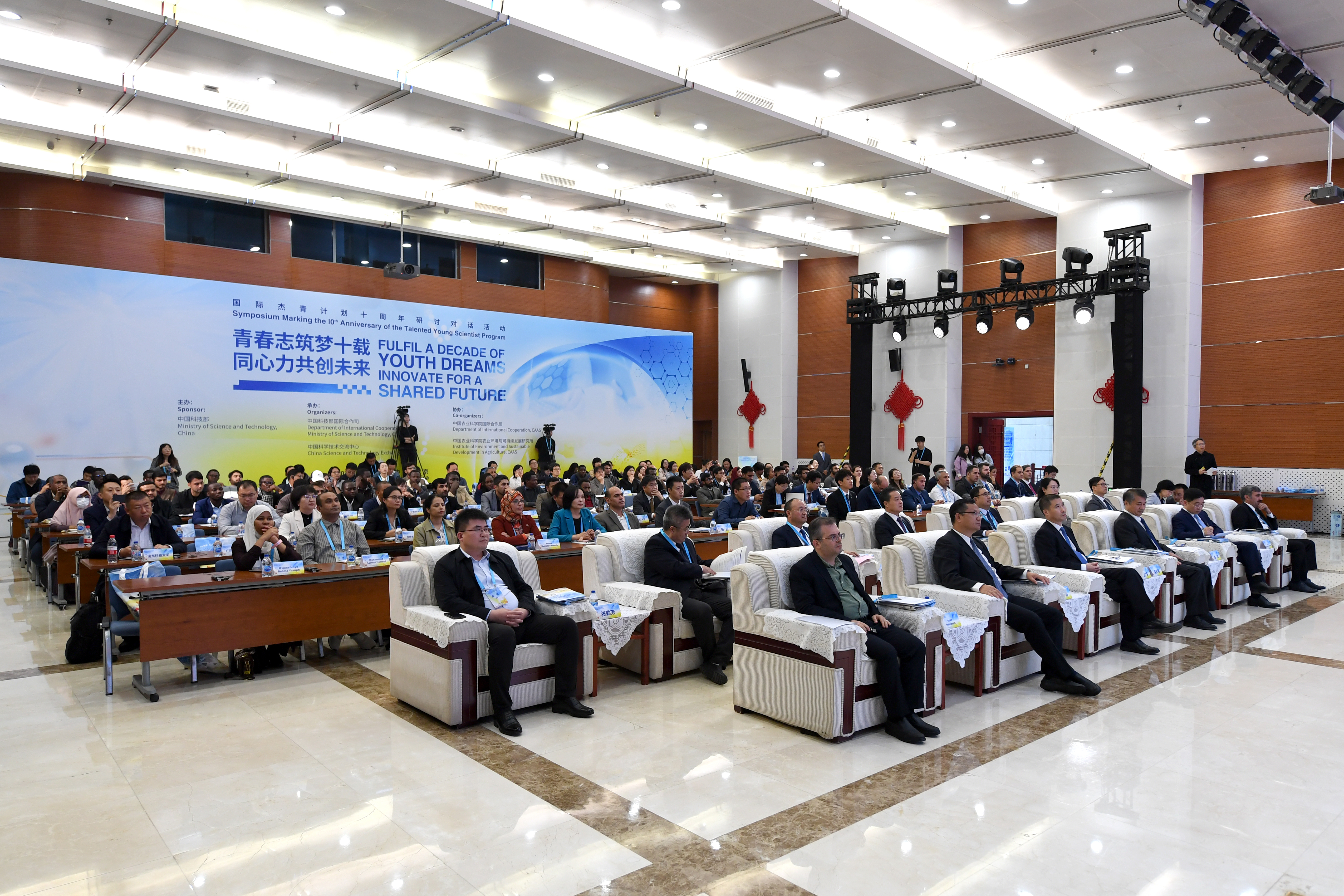Participants Laud TYSP's Role in Promoting Exchanges

By CHEN Chunyou
The 10th anniversary of the Talented Young Scientist Program (TYSP) is a milestone from which it will move forward with its mission to ignite passion in young scientists and support them to come up with innovations and breakthroughs that will enrich collective knowledge.
This was the opinion of the attendees at a symposium marking the 10th anniversary of the TYSP organized in Beijing on October 31 by the Department of International Cooperation of Ministry of Science and Technology and the China Science and Technology Exchange Center.
The researchers who had participated in the program and their institutions from around the globe shared their stories with the TYSP and spoke about their expectations.
Gao Qingzhu, deputy director of the Institute of Environment and Sustainable Development in Agriculture, Chinese Academy of Agricultural Sciences, said his organization received five scholars from Mongolia and Egypt. They applied to take part in projects with their Chinese counterparts and published high-quality papers during the period of cooperation.
Gao suggested extending the TYSP research cooperation span to more than one year since it takes time to get results from agricultural research. This can better meet researchers' needs, he said.
Farkhod Kasimov, an associate professor at the Tashkent State Technical University of Uzbekistan, joined the TYSP in 2018, when he was invited to take part in cooperative research at the Institute of Automation, Shandong Academy of Sciences in east China. It was his first visit to China. During his stay at the institute, he met researchers from different backgrounds, and had the opportunity to implement his research ideas.
Kasimov and his team made significant progress in improving the automatic control system of agricultural machinery.
Kasimov, who is currently studying intelligent agricultural machinery in automation, hoped that the scope of scientific and practical cooperation under the TYSP would expand in the future.
In the era of globalization, people are faced with common challenges, such as poverty, epidemics, natural disasters and climate change.
The TYSP has created a platform where scientists across the world can work together to promote exchanges and share knowledge, improving humanity's living environment, said Naser Golsanami, an Iranian researcher at the Shandong University of Science and Technology who had taken part in the TYSP. He also said the program can play a key role in sustainable development, high-quality industrial growth and talent cultivation.
"The TYSP not only contributes to the advancement of science, but also plays a significant role in fostering understanding and collaboration among people and nations," said Ferenc Hegyi, a research fellow at the Hungarian University of Agriculture and Life Sciences.
Hegyi, who joined the TYSP in 2019, regards it as a life-changing experience. He said it enabled him to learn about new research practices, experience a new culture, and build cross-cultural understanding.
More young researchers across the globe should participate in the program if they have the opportunity, he added.






